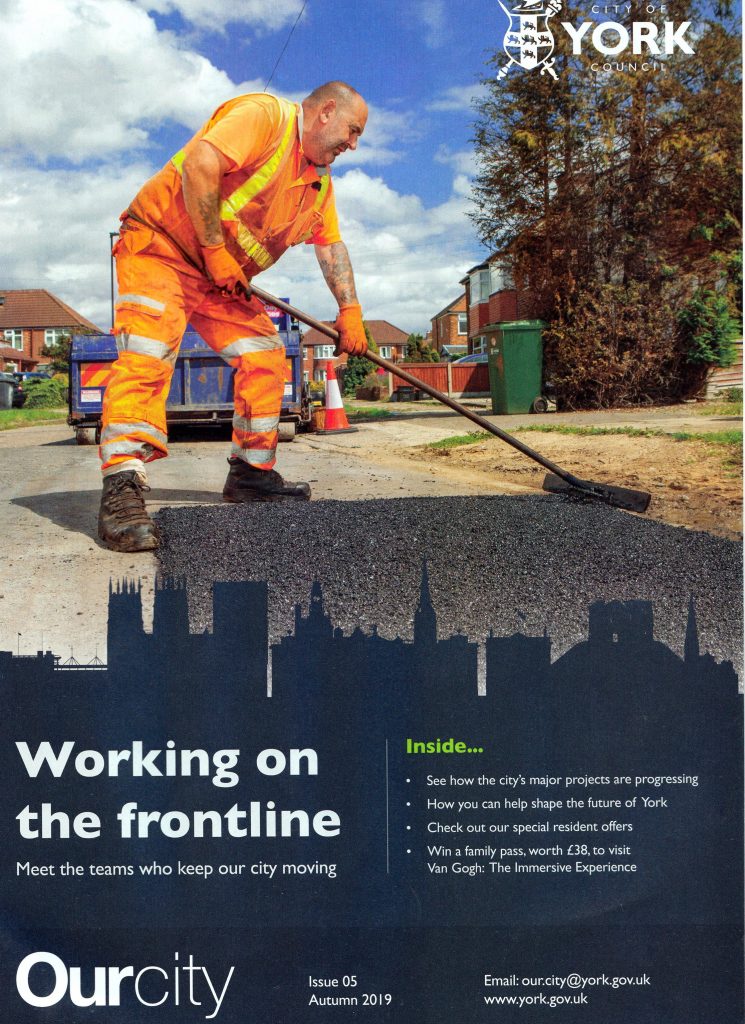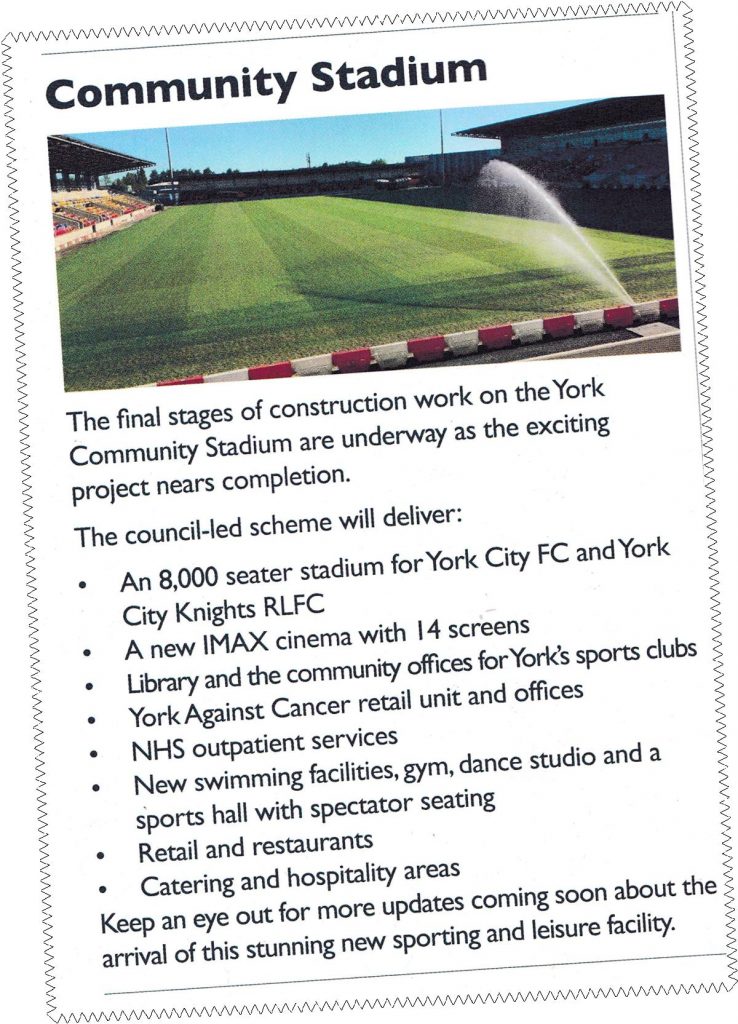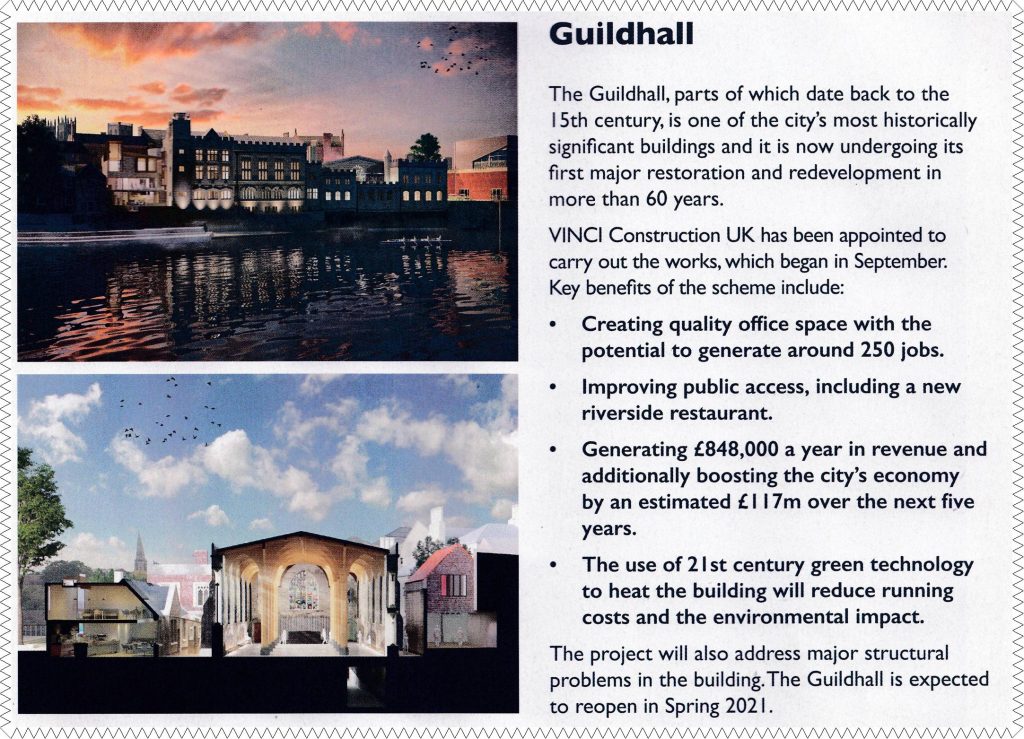Council publishes new “Our City” newspaper

No doubt the York Council would be criticised if it failed to keep residents informed about what goes on in the City and how the Council spends taxpayers money. Whether spending £10,000 on putting a magazine through everyone’s letterbox represents a prudent use of resources may divide opinion.
The current edition of “Our City” is tidier and therefore more accessible than previous editions. But it fails an important test.
It isn’t objective.
Telling people that things are going well when patently many street level public services in the City are far from that, transforms an information source into a propaganda channel.
There are major problems with keeping the streets tidy and free of weeds. The refuse collection service is now chronically unreliable. Many roads and paths are potholed. Some are dangerously obstructed by trees and hedges. These issues don’t merit a mention in “Our City”.

The Council does praise the hugely expensive community stadium project without telling people precisely when the stadium will come into use. Apparently the IMAX cinema (a plus for the City) will open in December but there is no explanation for the delays that have dogged the future home of York City FC and the York Knights Rugby team.
But the main concern will be the failure to be frank about the risks involved in some of its projects.
The Council is acting as its own housing developer and hopes to build 600 homes in the City over the next few years. It has recruited a significant number of additional staff to do so. It could have used local companies to undertake the work but chose not to. It is a high risk venture but, at the end of the day, in York any new homes will be occupied one way or another.

The same can’t be said about the £20 million Guildhall redevelopment. There is little evidence to suggest that a “business club” is needed in the City and even less that the York Council would be the best organisation to manage one.
The “Our City” article disingenuously talks of the project generating £848,000 a year in rents. It fails to point out that would involve renting out all the available space and that, even then, the income would be barely sufficient to pay the interest payments on the money that the Council intends to borrow to fund the scheme!
Sadly similar mistakes have been made in the past. £12 million was spent on the Barbican concert hall. The Council chose to manage that facility itself despite a complete lack of experience in the field. It later turned out that the hall manager had failed to apply for an entertainments licence for the building and had operated it unlawfully for several months. The Barbican ran at a loss of £800,000 a year and eventually had to be sold on to the private sector.
Whether anyone will come forward to rescue the Guildhall project remains to be seen.
